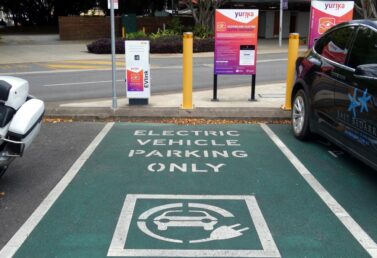The Queensland Government has agreed to share with the Commonwealth and the public previously secret data about the causes of car crashes, traffic policing and the condition of roads to help tackle the escalating road safety crisis.

The Queensland Government has agreed to share with the Commonwealth and the public previously secret data about the causes of car crashes, traffic policing and the condition of roads to help tackle the escalating road safety crisis.
The nation’s peak motoring group today welcomed this commitment and urged the Federal Government to compel other states to follow suit by linking the $10 billion it gives them in road grants each year to an obligation to publish their road safety data.
AAA Managing Director Michael Bradley said: “The road toll is rising by as much as 25 per cent a year in some states, and road safety data – particularly data telling us the actual causes of crashes – should be public so it can be used to create more effective road safety policies.
“I congratulate the Queensland Government for its commonsense approach. If other states take the same position, this will be Australia’s most important safety reform for decades.”
Speaking on ABC radio this week, Queensland Transport Minister Bart Mellish said: “I’m really keen to get as much of that information out there as we can; really keen to provide whatever we’ve got on our books from Department of Transport and Main Roads to the Federal Government and to anyone who it helps.”
The AAA has campaigned for years for governments to release data about the causes of car crashes, safety ratings on the nation’s roads and the effectiveness of police traffic enforcement. But to this point, governments have refused to budge.
Momentum for reform has increased in recent weeks, with The Courier-Mail newspaper this week publishing data about secret safety ratings about the Bruce Highway which were obtained by the Federal Opposition using Freedom of Information legislation. The data showed about 45 per cent of Queensland’s main highway is rated at two stars or less out of five in terms of safety.
Mr Bradley said a combination of media pressure and people power appeared to have convinced Mr Mellish to offer to open the books on road safety.
“It’s good to see The Courier-Mail and other media organisations getting behind road safety and even better to hear that politicians are finally starting to listen.
“We now call on Federal Transport Minister Catherine King to require other Australian states to follow Queensland’s lead. This should not be difficult because just four days before the last Federal election Minister King said she would work with states to ‘extract better-quality road safety data from states and territories in return for funding of road projects.’
“This road safety issue is too important to be a voluntary opt-in.
“Australians deserve to see data so they can be assured that governments are investing public money where it can save lives. As long as the secrecy continues, Australians will have no way of understanding whether their politicians are investing in roads to save lives or curry favour in marginal electorates.’’
Mr Bradley said the Commonwealth should establish an accountability requirement for states in the next National Partnership Agreement on Land Transport Infrastructure Projects, which is now under negotiation and due to take effect on July 1.
In 2023, 1,266 people died on Australian roads – up 7.3 per cent from 2022. The nation’s road toll has been rising in recent years, despite the Commonwealth and all states and territories adopting a target to halve road deaths by 2030.
Last October, the AAA began its Data Saves Lives campaign, which is supported by the nation’s motoring clubs, and 18 national organisations representing motorists, motorcyclists, truckers, pedestrians, doctors, insurers, road engineers and safety advocates.
All Liberal, National, Green and Teal federal MPs, as well as Independents like Queenslander Bob Katter, have endorsed the AAA’s commonsense proposal.
But so far, only one Labor federal MP – medical doctor Mike Freelander – has agreed to support road safety data transparency.

The quarterly update of the AAA’s EV Index shows Australians are continuing to shift towards electric vehicles and that internal combustion engines’ market share continues to decline.
read more
The Federal Government must be transparent about the impacts of its proposed New Vehicle Efficiency Standard if it is to deliver lasting change that can provide long-term certainty.
read more
The Biden Administration’s significant recalibration of the USA EPA’s fuel efficiency standard means both sides of politics in Canberra must reconsider their respective approaches to setting up similar Australian regulation.
read more